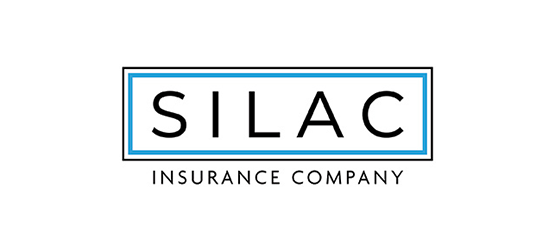What is Hospital Indemnity Insurance?
Hospital indemnity insurance is a supplemental insurance policy designed to provide financial support during hospital stays. Unlike traditional health insurance that covers medical expenses, hospital indemnity insurance offers a cash benefit directly to you, which you can use for any purpose, such as covering deductibles, copayments, or non-medical expenses like rent, utilities, and childcare.
This type of insurance is especially useful for individuals and families looking to mitigate the financial impact of unexpected hospitalizations. Whether it’s a planned procedure or an unforeseen emergency, hospital indemnity insurance ensures you have the resources to focus on recovery without worrying about financial strain.
Key Features of Hospital Indemnity Insurance
- Daily Cash Benefits: Receive a fixed amount for each day you’re hospitalized, as specified in your policy.
- Flexible Usage: Use the payout for any purpose, including medical bills, travel expenses, or household needs.
- Supplemental Coverage: Works alongside your existing health insurance to fill gaps in coverage.
- No Restrictions on Care Providers: Benefits apply regardless of the hospital or medical provider you choose.
- Quick Claims Process: Receive benefits promptly after filing a claim with documentation of your hospital stay.
Benefits of Hospital Indemnity Insurance
- Financial Security: Covers out-of-pocket expenses that your primary insurance may not, such as deductibles and copayments.
- Customizable Plans: Choose a benefit amount and coverage level that suits your budget and needs.
- No Restrictions on Usage: Spend the cash benefit on any expense, including non-medical costs like groceries or rent.
- Accessible Coverage: Available to individuals, families, and employees as part of workplace benefits.
- Peace of Mind: Provides financial relief during stressful medical events, allowing you to focus on recovery.
Limitations of Hospital Indemnity Insurance
- Limited to Hospital Stays: Benefits are only triggered by qualifying hospitalizations, not outpatient care.
- Daily Benefit Caps: Policies may limit the amount paid per day or per hospital stay.
- Pre-Existing Conditions: Some policies exclude coverage for conditions diagnosed before the policy start date.
- Not a Replacement for Health Insurance: This is a supplemental policy and does not cover medical treatment or procedures directly.
Who Should Consider Hospital Indemnity Insurance?
Hospital indemnity insurance is ideal for:
- Families with high-deductible health insurance plans who want to offset out-of-pocket costs.
- Individuals with limited savings to cover unexpected hospital bills or related expenses.
- Employees who want additional financial security through employer-provided benefits.
- Seniors on Medicare who face gaps in coverage for hospital stays.
Example Scenarios for Hospital Indemnity Insurance
- Childbirth Expenses: A family expecting a baby uses hospital indemnity insurance to cover the costs of a hospital stay that their health insurance doesn’t fully cover.
- Emergency Surgery: A single parent undergoing emergency surgery receives a daily cash benefit to pay for childcare and rent during their recovery.
- Planned Procedures: An individual undergoing knee replacement surgery uses the policy payout to cover travel expenses to a specialized medical facility.
Common Misconceptions About Hospital Indemnity Insurance
Misconception 1: My health insurance will cover all my hospital costs.
- Reality: Even comprehensive health insurance often leaves gaps, such as deductibles, copayments, and non-medical expenses.
Misconception 2: Hospital indemnity insurance only covers long hospital stays.
- Reality: Most policies provide benefits for both short and extended hospital stays, as long as they meet the policy criteria.
Misconception 3: The claims process is too complicated.
- Reality: Filing a claim is straightforward, typically requiring proof of your hospital stay and medical documentation.
FAQs About Hospital Indemnity Insurance
Q: What does hospital indemnity insurance cover?
A: It provides a daily cash benefit during hospital stays, which can be used for medical and non-medical expenses.
Q: Can I combine this with other insurance policies?
A: Yes, hospital indemnity insurance is designed to supplement existing health coverage, including employer-provided plans and Medicare.
Q: Is there a limit on the payout?
A: Policies typically have caps on daily benefits and total payouts per hospital stay, which vary by plan.
Q: Are pre-existing conditions covered?
A: Coverage for pre-existing conditions depends on the policy. Some policies have exclusions or waiting periods for these conditions.
Tips for Choosing the Right Hospital Indemnity Insurance Policy
- Evaluate Your Health Insurance: Identify gaps in your current coverage, such as high deductibles or copayments, to determine your need for supplemental coverage.
- Review Coverage Details: Understand the daily benefit amount, maximum payout, and eligible hospital stays.
- Check for Exclusions: Look for exclusions related to pre-existing conditions or specific types of hospitalizations.
- Compare Providers: Research insurers to find a policy with competitive premiums and reliable claims processing.
- Consider Family Coverage: If you have dependents, choose a policy that covers family members for added security.
Why Hospital Indemnity Insurance is Essential
Hospital stays can lead to significant financial strain, even with comprehensive health insurance. Deductibles, copayments, and non-medical expenses like transportation and childcare can quickly add up. Hospital indemnity insurance fills these gaps, providing cash benefits that ensure you’re financially prepared for unexpected events.
This policy not only protects your savings but also offers peace of mind, allowing you to focus on your recovery and well-being. Whether you’re planning for the unexpected or looking to enhance your workplace benefits, hospital indemnity insurance is a smart addition to your financial safety net.
Privacy and Compliance
We are committed to safeguarding your personal information. Our platform adheres to HIPAA, FTC, and FCC regulations to ensure your data is secure and handled with the utmost care.
Protect yourself and your family from the financial burden of unexpected hospital stays.






































